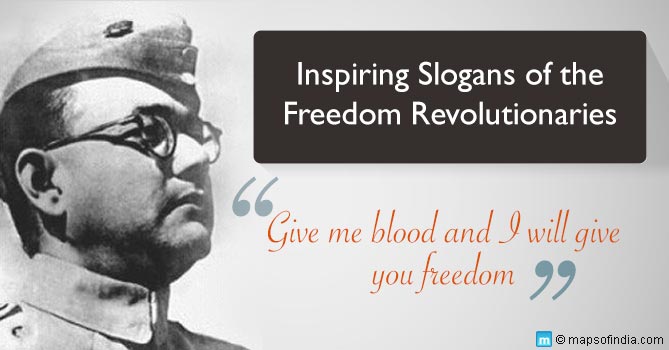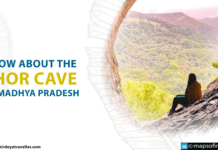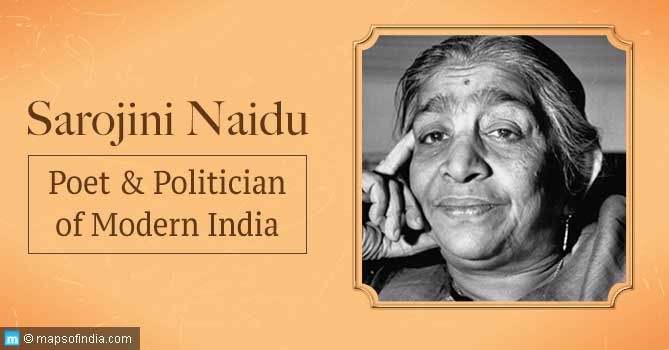Starting with the revolt of 1857, the journey for India’s freedom was scrupulous, and also a long one. After fighting for over a century (1857-1947) we, Indians, got our freedom back.
How can we forget the Jallianwala Bagh massacre in which thousands of innocent Indians were killed? Hundreds of fearless fighters sacrificed their blood and soul for the attainment of independence. It has been 74 years since India got Independence, and yet, the powerful words of our freedom fighters never fail to give us goosebumps. They repeatedly tend to ignite a strange fire and love within us for our motherland.
Let’s take a trip down the memory lane and rejoice in the courageous words of our freedom fighters:
- “Inqalab Zindabad”- Shaheed Bhagat Singh
Shaheed Bhagat Singh was born on September 28, 1907 in Banga, Punjab. The brave soul is considered one of the most influential revolutionaries of the Indian nationalist movement. He met with many revolutionary organizations and made a great contribution to the Indian national movement.
This slogan was coined by Urdu poet and Indian freedom fighter Maulana Hasrat Mohanib but was popularised by one of the most influential Indian revolutionaries, Bhagat Singh. He was the one who sacrificed his life for the country at the young age of 23. The meaning of the slogan “Inquilab Zindabad” is “Long live the revolution”. This slogan became one of the rallying cries of the independence struggle and motivated the youth of India to participate in the freedom struggle. It awakened in them the feeling of patriotism and a pro-independence sentiment.
- “Tum Mujhe Khoon Do, Mai Tumhe Azadi Dunga” – Subhash Chandra Bose
The great freedom fighter Netaji Subhash Chand Bose was born on 23 January 1897 in Cuttack village of Odisha. He was the foremost and biggest leader of India’s freedom struggle. During the Second World War, he formed the ‘Azad Hind Fauj’ with the help of Japan to fight against the British.
The literal meaning of this slogan is “Give me blood and I will give you freedom”. It was devised by Subhash Chandra Bose, affectionately known as Netaji, who was the founder of the Indian National Army. He urged the youth of India to participate in the freedom struggle through his own methods. He gave the slogan “Tum Mujhe Khoon Do, Mai Tumhe Azadi Dunga” to motivate the people to fight more actively for the freedom of the country. He was the one who inspired thousands of young minds to lay down their lives for the motherland.
- “Karo ya Maro” – Mahatma Gandhi
Mahatma Gandhi ji was born on October 2, 1869 in Porbandar. He returned to India from England in 1890 as a lawyer and gave his whole life for the Indian freedom struggle. Mahatma Gandhi made many movements against the British, including Champaran Movement, Kheda Movement, Khilafat Movement, Nam Movement and Quit India Movement.
Mohandas Karamchand Gandhi, popularly known as Mahatma Gandhi. The slogan “Do or Die” was delivered by Mahatma Gandhi after a meeting of the AICC (All India Congress Committee) which was held on August 7, 1942. The next day i,e on August 8, 1942, Quit India resolution was passed with an overwhelming majority which declared the immediate end of British rule in India. So, on the night while addressing the Congress delegates Mahatma Gandhi said,“ Mere jail jaane se kuch nahi hoga; karo ya maro,” which ultimately meant that either we shall free India or we shall die in the attempt.
- “Sare Jahan Se Achha Hindustan Hamara” – Muhammad Iqbal
Mohammad Iqbal was born on 9 November 1877 in Sialkot, Punjab (now Pakistan).
Muhammad Iqbal was a famous poet, politician, philosopher and a remarkable academic. He was also a barrister in British India. He used poetry and songs to spread political awareness amongst the people. Iqbal wrote: “Sare Jahan se Achha Hindustan Hamara”; the famous song was used as a slogan to rejuvenate the youth with a feeling of patriotism. The abridged version of the song is still sung and is also played frequently as a marching song by the Indian Armed Forces.
- “Vande Mataram” – Bankim Chandra Chatterjee
Literary sages, who were active in the fight for freedom of the world’s largest democracy, not only gave new life to the freedom struggle with their great and immortal works like Vande Mataram, but also strengthened the literature of Indian languages and provided new dimensions.
“Vande Mataram”, meaning “Mother, I bow to thee”, was a poem written by Bankim Chandra Chatterjee, an Indian journalist, and activist. He is the one who personified India as Goddess and mother during the Indian National Movement in this poem which was later translated as a song by Rabindranath Tagore. The first stanza of the poem has been adopted as the national song of India in present times. The line “Vande Mataram” has been frequently used to salute the motherland respectfully.
- “Satyameva Jayate” – Pandit Madan Mohan Malviya
Considered as the ideal man of this era, Madan Mohan Malaviya was the first and last person in India to be decorated with the honorific title of Mahamana. Malaviya ji was unique in truth, brahmacharya, exercise, and patriotism.
The origin of this slogan lies in the well-known mantra from the Mundaka Upanishad. “Truth alone triumphs” is the literal meaning of this phrase which is not only adopted as the national motto of India but also inscribed at the base of our national emblem. It was Pandit Madan Mohan Malviya, an activist and also the founder of Banaras Hindu University, who used this slogan in his presidential address in 1918 in the Indian National Congress convention. He made sure this slogan reached the masses and inspired them.
- “Swaraj mera janam sidh adhikar hai, aur mai ise lekar rahunga” – Bal Gangadhar Tilak
Bal Gangadhar Tilak was born on 23 July 1856 in Chikkan village of Konkan Pradesh (Ratnagiri) of Maharashtra.
“Swaraj is my birthright and I shall have it,” this slogan coined by Bal Gangadhar Tilak ignited the spark of patriotism amongst countless Indians during the freedom struggle. He is the one who emphasised on the education of youth and mobilised people from all sections of society. This popular nationalist, social reformer and also a lawyer strongly advocated human rights. His slogan motivated people to attain complete freedom and also provoked love for the country among them.
Tilak started two daily newspapers in Marathi named ‘Maratha Darpan and Kesari’ which became very popular among the masses. In which Tilak criticized the cruelty of British rule and inferiority complex to Indian culture.
He demanded the British government to immediately grant full swaraj to the Indians, as a result because of his articles appearing in Kesari, he was sent to jail several times.
- “Khoon se khelenge Holi gar Vatan mushkil main hai” – Ashfaqullah Khan
Amar Shaheed Ashfaq Ullah Khan was a true son of Mother India. At the age of 27, Ashfaq Ullah Khan kissed the noose by sacrificing his life for the freedom of the motherland. Ashfaq Ulla Khan was also a great Urdu poet. He played an important role along with his friends in the Kakori incident.
Ashfaqullah Khan, a prominent figure in the Kakori dacoity, was a freedom fighter from Shahjahanpur and also a close acquaintance of Ramprasad Bismil. They both were awarded death sentences for Kakori robbery after being caught. Khan was an enthusiast; he used the line “Khoon se khelenge Holi gar Vatan mushkil main hai” from the poem Sarfaroshi ki Tamanna as a slogan to encourage the youth.
- “Ab bhi jiska khoon khaula nahi wo pani hai, jo desh ke kaam na aaye woh bekar jawani hai” – Chandrashekar Azad
Chandrashekhar Azad had an extremely revolutionary ideology with respect to the freedom movement. He was popular amongst the masses by his self-taken name “Azad”. It was at a young age that Azad joined the freedom struggle and participated in various violent movements. Azad vowed to free the motherland from the clutches of the British.
Determined never to be caught by the British, Azad revolutionised the youth by giving highly motivating slogans. This slogan lit the spirit to fight for the country.
“Sarfaroshi ki tamanna ab •hamare dil me hai, dekhna hai zor kitna baazu-e-qaatil mein hai” – Ramprasad Bismil
These lines by Ramprasad Bismil are taken from his patriotic poem which was later used as a slogan to challenge the British authority ruling in India. This slogan enlightened the need of the hour and urged people to fight for freedom against British imperialism. Bismil was one of the most talented patriotic writers of the time.
- “Aaram haram hai” – Jawaharlal Nehru
Pandit Jawaharlal Nehru was born on 14 November 1889 in Allahabad in a prosperous family of Kashmiri Pandits.
Jawaharlal Nehru, a central figure in Indian politics, and the first Prime Minister of India was also amongst the desperate freedom fighters who wanted the motherland to be free from British rule. As per Nehru, not even a single sigh of relief was experienced until India got independence. Taking rest was unworthy as per him.
Jawaharlal Nehru participated with Mahatma Gandhi in the Salt Satyagraha, Quit India Movement, Non-Cooperation Movement and many such important movements. In 1928, as a result of being the leader of the movement against the Simon Commission, Nehru and others were lathi-charged by the police.
Nehru was once again arrested because of the historic resolution “Quit India” in the Congress Committee meeting held on 7 August 1942 in Mumbai. This was the last time he was going to jail. That time Nehru was arrested for a long time. In his entire lifetime, he was jailed nine times for serving our nation.





